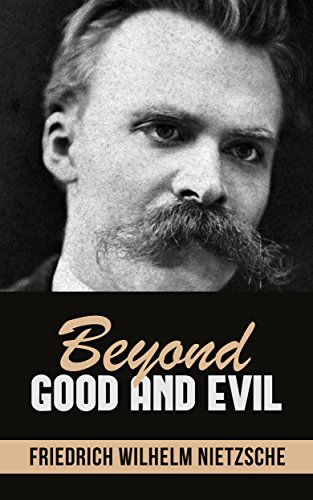Beyond Good and Evil by Friedrich Wilhelm Nietzsche Link to heading
Summary Link to heading
“Beyond Good and Evil,” written by Friedrich Wilhelm Nietzsche, delves into the philosophical examination of morality and challenges traditional ethical frameworks. Nietzsche critiques past philosophical ideologies, particularly those grounded in religious morality, and introduces his concepts of the “will to power,” perspectivism, and the revaluation of values. The book is structured into nine parts, each addressing different aspects of philosophy, religion, morality, and society. Nietzsche advocates for a new “philosopher of the future” who transcends conventional moral codes to create values that affirm life.
Review Link to heading
“Beyond Good and Evil” is considered one of Nietzsche’s most influential works where he expands and clarifies ideas presented in his earlier book, “Thus Spoke Zarathustra.” Nietzsche’s prose is often aphoristic, incisive, and provocative, providing a rich text for philosophical inquiry. The book is acclaimed for its profound critique of traditional morality and its call for individuality and self-determination. Some critiques of the work highlight Nietzsche’s at times dense and enigmatic style, which can be challenging for readers unfamiliar with his philosophy.
Key Takeaways Link to heading
- Will to Power: A fundamental concept where Nietzsche proposes that the primary driving force of humans is not survival or reproduction, but a basic will to exert power and achieve dominance.
- Perspectivism: Nietzsche suggests that all knowledge and truth are bound by the perspectives of individuals and cultural contexts. There are no absolute truths, only interpretations.
- Critique of Dogmatism: He criticizes dogmatic beliefs, especially in religion and philosophy, promoting skepticism and questioning of established norms.
- Master-Slave Morality: Nietzsche distinguishes between “master morality,” which values power and pride, and “slave morality,” which values things like kindness and sympathy, often dictated by those who lack power.
- Creation of New Values: Encourages the development of personal ethos beyond traditional norms, advocating for life-affirming values that strengthen individual potential.
Recommendation Link to heading
“Beyond Good and Evil” is a must-read for students of philosophy, especially those interested in existentialism and moral philosophy. It is highly recommended for readers who are intrigued by critiques of traditional morality and who seek to understand Nietzsche’s influence on modern thought. However, it may be challenging for beginners due to its complex themes and metaphorical language, so some familiarity with Nietzsche’s basic concepts or supplementary guides may be beneficial.
